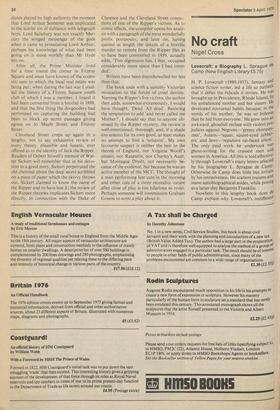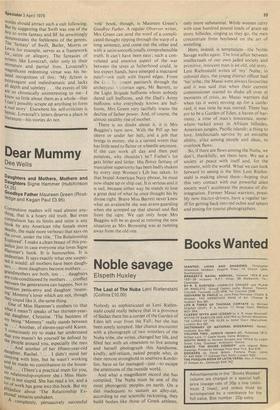No craft
Nigel Cross
Lovecraft: a Biography L. Sprague de Camp (New English Library £5.75) H. P. Lovecraft (1890-1937), fantasy and science fiction writer, led a life so pathetic that it defies the ridicule it invites. He was brought up in Providence, Rhode Island, by his unbalanced mother and her sisters. He developed nocturnal habits because, in the words of his mother, 'he was so hideous that he hid from everyone.' He grew into an awkward, ghoulish recluse with violent pre- judices against Negroes—'greasy chimpan- zees', Asians—'squat, squint-eyed jabber: ers' and Jews--'repulsive rat-faced aliens. The only paid work he undertook was ghost-writing for the crassest men and women in America. All this is told effective- ly through Lovecraft's many letters selected by his biographer L. Sprague de Camp. Otherwise de Camp does little but irritate by his intrusiveness. He scatters truisms and inane autobiographical asides, while posu18 as a latter-day Benjamin Franklin. Nowhere in this lengthy book does de Camp explain why Lovecraft's indifferent stories should attract such a cult following. But by suggesting that Swift was one of the first to write fantasy and SF he unwittingly demonstrates the feebleness of the genres. The 'fantasy' of Swift, Butler, Morris or Lewis for example, serves as a framework for satire or allegory. The fantasies of writers like Lovecraft, refer only to their immature and partial lives. Lovecraft's magnificent redeeming virtue was his be- lated recognition of this: 'My fiction is extravagant and melodramatic and lacks all depth and subtlety . . . the events of life are so chronically uninteresting to me—I know so little about them as a whole—that I Can't possibly scrape up anything to form a real story'. Elsewhere his self-criticism is heroic. Lovecraft's letters deserve a place in literature—his stories do not.



































 Previous page
Previous page